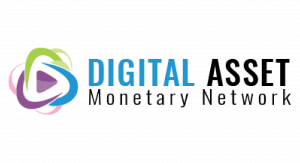Open finance is a concept that’s been gaining momentum in recent years because of its practical applications for consumers and businesses. By merging fintech and traditional banking for best-of-breed financial services, open banking relies on third party access to APIs to hook up new services and apps to access consumer data for product development. In an open finance ecosystem, there are benefits and opportunities for both banks and consumers, but it’s crucial the 99% doesn’t get fleeced in this emerging trend. Let’s dig into how banking-as-a-service (BaaS) could upend the future of finance.
Freedom from banks
Once upon a pre-internet time, a consumer’s choice of banking institution was relegated to whatever physical branch was located in the nearest town or city. Now in the year of our lord 2021, the internet has revolutionized most industries and that includes finance. Consumers can access their financial info anytime from anywhere and select the banking institution(s) best suited to their needs. Pro: consumers have more choice. Con: consumers have more choice. Gah. It’s common for consumers to suffer from paralysis by analysis, and that behavior certainly extends to financial products. With endless choice, we’ve come a long way from the town bank. The BaaS revolution has been a boon for banks because they’ve increased revenue service streams and attracted new customers. Buuuut data leaks are commonplace. While it’s fantastic when consumers have more choice, we’re at a major disadvantage when financial institutions control our data and behave carelessly.
Digital assets are the future
Decentralized finance (DeFi) may look like it belongs on the periodic table, but it’s a major part of the future of finance by virtue of being blockchain-based. Similar to when consumers cut their home cable in favor of streaming services, DeFi places core financial functionality directly into our hands. This relegates banks to useless middlemen because a decentralized banking environment is peer-to-peer, transparent and borderless. While the DeFi infrastructure is still under development, folks like Robinhood and PayPal have integrated crypto into their environments, which is a not-so subtle nod to a blockchain future. Wrestling control away from a central source of gatekeepers and ginormous institutions serves to empower regular people who struggle to access capital or the markets.
Different strokes for different folks
When a consumer’s financial life was routed through one banking institution their whole life, there wasn’t much to learn and master. Nowadays there exists endless choice and subsequent due diligence via research, and education is necessary in today’s world of digital finance. Untethered from one physical institution, consumers can select banking bundles to best meet their needs and secure flexible, cheaper, more tailored service offerings. Financial freedom has arrived, but it’s more in the form of blockchain tech, not retirement at 62. Who woulda thunk?
Join the DigitalAMN PAI Ecosystem—Find out more or email info@digitalamn.com
The True Potential of Blockchain for the 99%
New to Crypto Mining? 4 Basic Answers to 4 Big Questions
Robinhood Isn’t The Only Equity Investment Option Available to Eager New Traders
Banking-as-a-Service is a Missing Link in the Coronavirus Recovery


